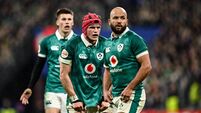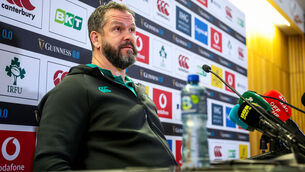Fighting faraway hills
PHILIP BROWNE would be forgiven for casting an envious glance towards Declan Kidney as the Ireland coach channels all his focus into the task of achieving an opening Six Nations victory in Rome tomorrow.
Kidney has one job with one objective: victory. His boss, the IRFU chief executive, has several more plates to keep in the air, however, and in these straitened times it is becoming an increasingly complex task to keep them all spinning.












